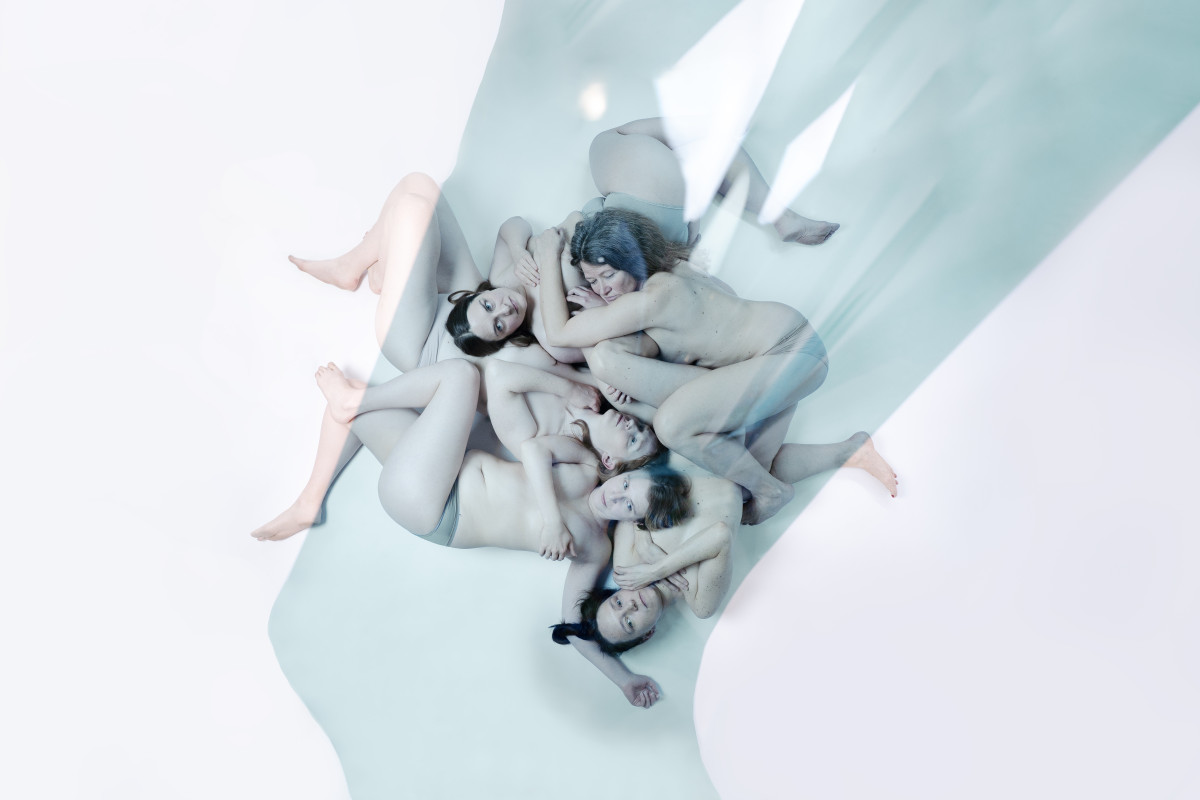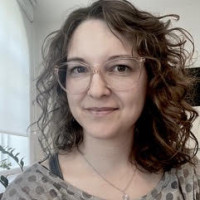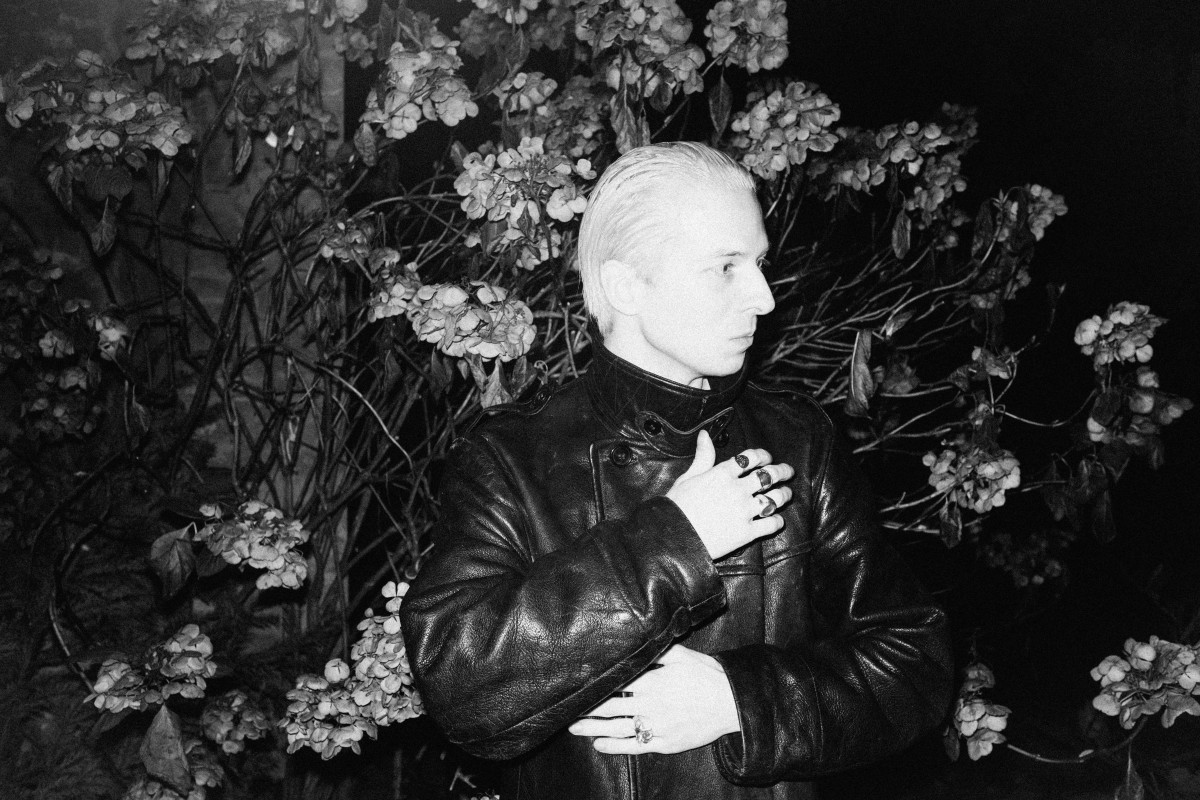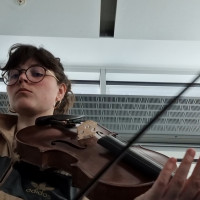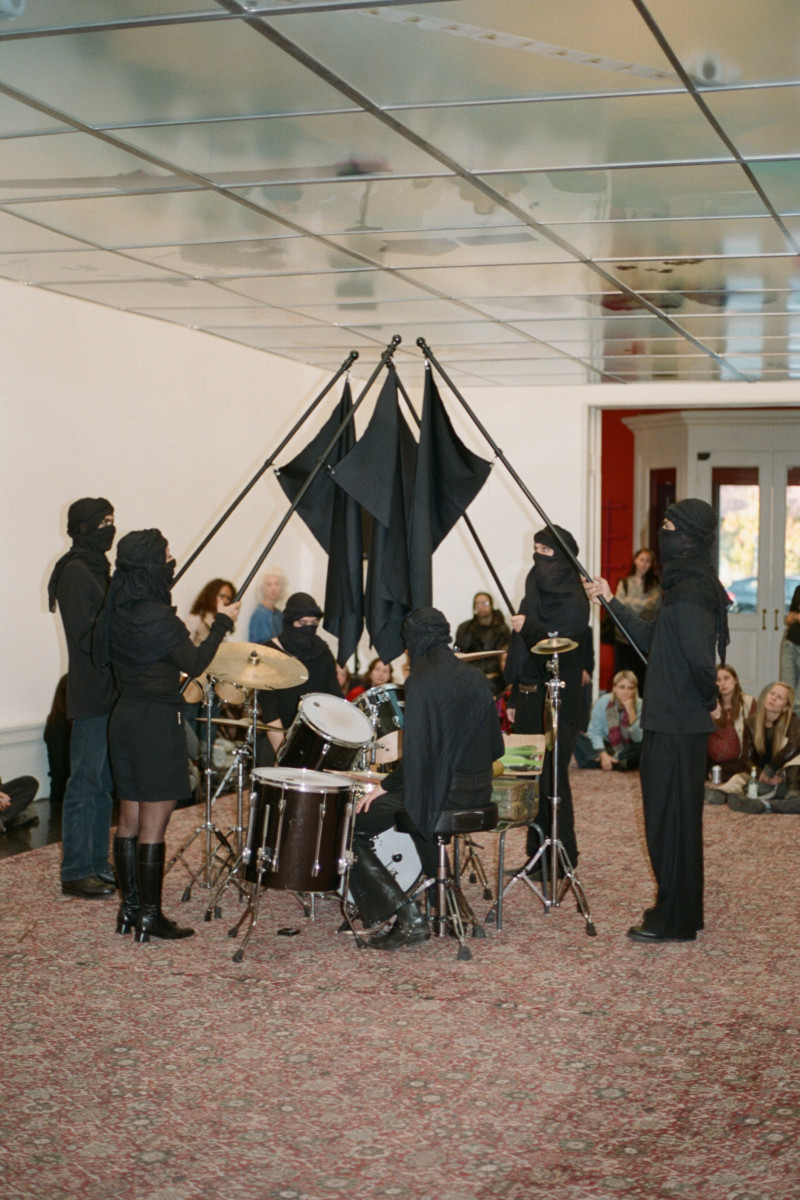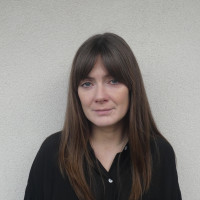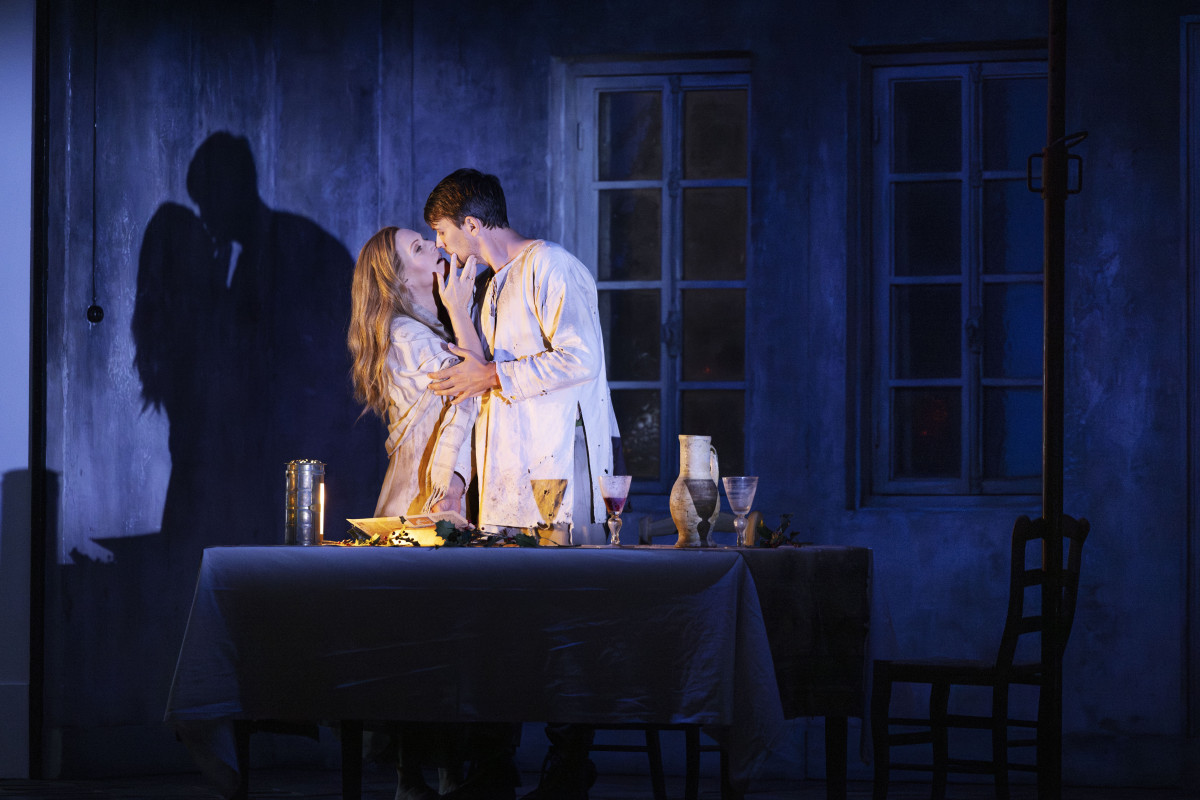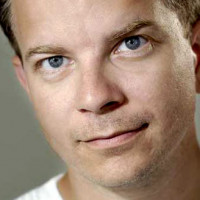K Bech – kendt fra rockbandet Shiny Darkly – åbnede lørdagens koncert på Alice med en rå og upoleret melankoli. Et københavnsk storby-mismod trådte tydeligt frem, men det lidt nervøse sæt kom aldrig helt op at flyve. Trods et lovende setup med violin, guitar og elektroniske tracks forblev de følsomme tekster mere antydninger end gennembrud.
Soap Horse tog derefter scenen og satte for alvor fut i aftenen med et ægte chicken-picking riff. Spilleteknikken, hentet fra country, blev blot ét eksempel på det musikalske overskud, der gennemsyrer bandet, som netop har udgivet debut-EP’en Tooth Inside a Tooth. Intet virkede tilfældigt. Det rustrøde goth-vægtæppe, den nøje udvalgte instrumentering – violin, saxofon og pedalsteel side om side med guitar, bas og trommer – skabte en gennemført æstetik. Musikken var mørk og dragende, i skarp kontrast til forsanger Hans Gustav Björklund Moulvads kridhvide hår og intense tilstedeværelse.
Sangene var struktureret med en raffineret sans for balance. Enkle, gentagne motiver blev sendt på vandring mellem instrumenterne, og når massive støjflader og farverige klange væltede ind, blev indierockens allerede udviskede grænser strakt yderligere. Moulvad styrede suverænt helheden og bevægede sig karismatisk mellem musikkens mange lag.
Alligevel savnede jeg, at Soap Horse turde slippe tøjlerne helt. De svævende intermezzi, hvor den atypiske besætning for alvor kunne folde sig ud, blev ofte kvalt af et insisterende trommebeat, som trak musikken tilbage til et sikkert udgangspunkt. Soap Horse viste stor kontrol og et imponerende greb om både sit univers og sit publikum. Måske mangler de blot at bevise, at de også tør give slip.



